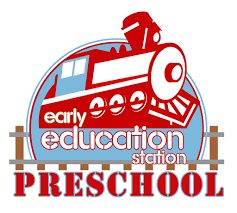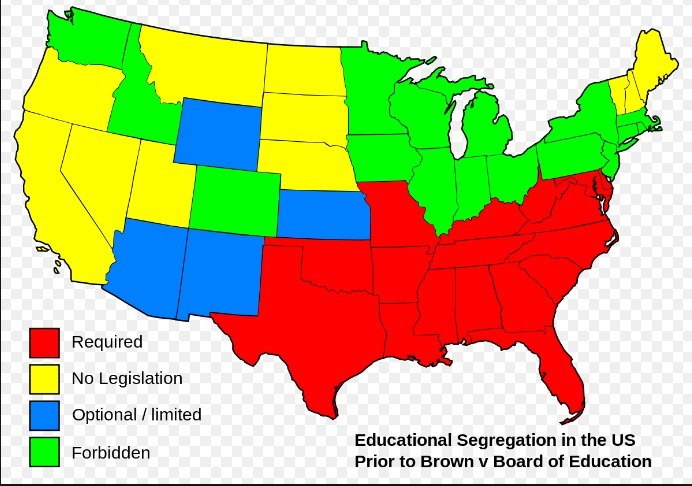Unveiling Truths: Exploring a Diploma in Journalism and Mass Communication

Introduction
Journalism and mass communication are powerful tools that shape public opinion, influence decision-making, and inform society about the world around them. Pursuing a Diploma in Journalism and Mass Communication can open doors to a fulfilling career in the field of journalism and mass communication, where you can unveil truths, tell compelling stories, and make a difference in the world. This comprehensive guide delves into the world of a Diploma in Journalism and Mass Communication, exploring the curriculum structure, practical training opportunities, and valuable insights on ethics of journalism.
Table of Contents
- Introduction
- The Power of Journalism and Mass Communication: Diploma in Journalism and Mass Communication
- Choosing the Path: Diploma in Journalism and Mass Communication
- Curriculum Overview
- Practical Training and Hands-On Experience
- Ethics of Journalism: The Foundation of Responsible Journalism
- Career Paths in Journalism and Mass Communication
- Conclusion
The Power of Journalism and Mass Communication: Diploma in Journalism and Mass Communication
Journalism and mass communication are at the core of promoting democracy, transparency, and social justice. A Diploma in Journalism and Mass Communication equips individuals with the knowledge, skills, and ethical framework to become responsible and effective journalists, media professionals, or communication experts.
Choosing the Path: Diploma in Journalism and Mass Communication
When considering a career in journalism and mass communication, choosing the right educational path is crucial. Here are some key factors to consider when selecting a Diploma in Journalism and Mass Communication program:
Accreditation
Ensure that the institution offering the Diploma in Journalism and Mass Communication is accredited by recognized journalism or mass communication associations or educational bodies. Accreditation ensures that the program meets industry standards and provides quality education in journalism and mass communication.
Specializations
Look for programs that offer specializations or elective courses in areas such as investigative journalism, broadcast journalism, public relations, advertising, or digital media. Specializations allow you to focus on specific areas of interest and develop expertise in specialized fields of journalism and mass communication.
Practical Experience
Consider programs that offer practical training opportunities, such as internships, fieldwork, or hands-on projects. Practical experience allows you to apply theoretical knowledge in real-world settings, develop practical skills, and build a professional network in the field of journalism and mass communication.
Curriculum Overview
The curriculum of a Diploma in Journalism and Mass Communication is designed to provide students with a comprehensive understanding of journalism and mass communication principles, techniques, and practices. Here are some common components found in journalism and mass communication diploma programs:
Journalism Fundamentals
Courses in journalism fundamentals cover the basics of news reporting, writing, editing, and production. Students learn how to gather information, conduct interviews, write news stories, and produce multimedia content for various platforms.
Mass Communication Theory
Courses in mass communication theory explore the principles of mass communication, media effects, and audience analysis. Students learn how to analyze media messages, understand media audiences, and develop effective communication strategies.
Media Production
Media production courses focus on the technical aspects of media production, such as audio and video production, photography, and graphic design. Students learn how to use industry-standard tools and techniques to create compelling and engaging media content.
Public Relations and Advertising
Courses in public relations and advertising cover the principles of public relations, advertising, and marketing communication. Students learn how to create effective communication campaigns, manage public relations crises, and develop brand strategies.
Digital Media and Social Media
Courses in digital media and social media explore the role of digital and social media in journalism and mass communication. Students learn how to use digital and social media platforms, create digital content, and analyze digital media metrics.
Practical Training and Hands-On Experience
Practical training and hands-on experience are essential components of a Diploma in Journalism and Mass Communication, allowing students to apply theoretical knowledge to real-world journalism and mass communication practice. Here are some common types of practical training opportunities:
Internships
Internships provide students with hands-on experience in media organizations, advertising agencies, or communication departments. Students work under the supervision of experienced journalists, media professionals, or communication experts, gaining practical skills and exposure to diverse journalism and mass communication practices.
Fieldwork
Fieldwork allows students to apply their theoretical knowledge in real-world settings, such as conducting research, reporting news, or creating media content in the community. Students engage with diverse populations, gather information, and produce media content that reflects the needs and interests of the community.
Hands-On Projects
Hands-on projects involve students working in teams or individually to create media content, communication campaigns, or multimedia productions. Students apply their knowledge, skills, and creativity to produce media content that meets industry standards and showcases their talents.
Ethics of Journalism: The Foundation of Responsible Journalism
Ethics of journalism is a crucial aspect of journalism and mass communication, ensuring that journalists and mass communication professionals adhere to a set of principles that promote responsible and ethical journalism. Here are some key ethical principles to consider:
Truth and Accuracy
Journalists and mass communication professionals should strive for truth and accuracy in their reporting, ensuring that the information they present is fair, balanced, and based on verifiable facts.
Objectivity and Impartiality
Journalists and mass communication professionals should strive for objectivity and impartiality in their reporting, avoiding bias or favoritism towards any particular viewpoint or perspective.
Fairness and Justice
Journalists and mass communication professionals should strive for fairness and justice in their reporting, ensuring that they treat all individuals and groups with respect, dignity, and equality.
Privacy and Confidentiality
Journalists and mass communication professionals should respect the privacy and confidentiality of individuals and groups, avoiding intrusive or exploitative reporting practices.
Transparency and Accountability
Journalists and mass communication professionals should be transparent and accountable in their reporting, disclosing any conflicts of interest, biases, or errors, and correcting them promptly and openly.
Career Paths in Journalism and Mass Communication
Graduates of a Diploma in Journalism and Mass Communication have a wide range of career paths to explore in the dynamic field of journalism and mass communication. Here are some potential career opportunities for individuals with a diploma in journalism and mass communication:
Print Journalist
Print journalists work for newspapers, magazines, or digital publications, researching, writing, and editing news articles, features, and opinion pieces.
Broadcast Journalist
Broadcast journalists work for television or radio stations, researching, writing, and presenting news stories, interviews, and reports.
Digital Journalist
Digital journalists work for online publications, creating and curating content for various digital platforms, such as websites, social media, or mobile apps.
Public Relations Specialist
Public relations specialists work for organizations, creating and implementing communication strategies that promote positive public perception, engagement, and reputation.
Advertising Professional
Advertising professionals work for advertising agencies or marketing firms, creating and implementing communication campaigns that promote products, services, or brands.
Media Producer
Media producers work for media organizations, creating and producing audio and video content for various platforms, such as television, radio, or online.
Communication Strategist
Communication strategists work for organizations, developing and implementing communication strategies that align with business objectives, stakeholder needs, and market trends.
Conclusion
Embarking on the journey to pursue a Diploma in Journalism and Mass Communication is a transformative experience that opens doors to a world of truth, creativity, and impact. By immersing yourself in a comprehensive curriculum, gaining practical training experiences, and learning about ethics of journalism, you can embark on a fulfilling career in journalism and mass communication and make a difference in the world through your journalism expertise.Remember, journalism and mass communication are more than just reporting the news or creating content; it’s about unveiling truths, telling compelling stories, and making a difference in the world. Whether you aspire to become a print journalist, broadcast journalist, digital journalist, public relations specialist, advertising professional, media producer, or communication strategist, a Diploma in Journalism and Mass Communication equips you with the skills, knowledge, and confidence to succeed in the dynamic and rewarding field of journalism and mass communication.
So, unveil truths, tell compelling stories, and make a difference in the world. Embrace the power of journalism and mass communication, explore your creativity, and let your expertise inspire and captivate others. With dedication, perseverance, and a commitment to continuous learning and growth, you can build a successful career in journalism and mass communication and leave a lasting impact on the world through your journalism expertise.





